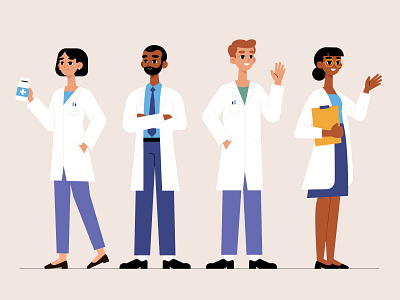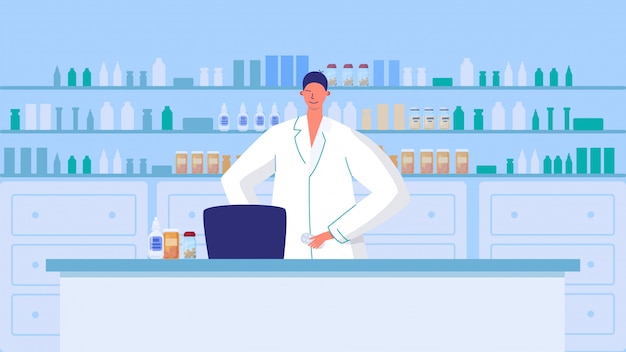The
Importance of Veterinary Medicine
Gracelynne
Victoria Irawan
(Rudolf Virchow, 1821–1902) “Between
animal and human medicine there is no dividing line—nor should there be. The
object is different, but the experience obtained constitutes the basis of all
medicine.” Veterinarians are the only doctors educated to protect and act
as a bridge to both animals and people in our world. They address the health
and welfare of every animal species and are fundamental roles in environmental protection,
research, food safety, public health, and many more. Protecting the health of
animals and society. They are needed as much as doctors who specialize health
towards people in the present or future time.
https://www.usnews.com/education/best-graduate-schools/articles/how-to-apply-to-veterinary-school-and-become-a-veterinarian
All animal species and Homo
sapiens are related to the knowledge gained by one species to connect and
benefit all which leads to the concept of “One Medicine”. It defines human and
animal health to emphasize the interconnectedness, relationships and
transferability of the knowledge needed in solving health problems in all
species. All veterinary activities affect human health either directly
biomedically, research, public health or indirectly by addressing domestic
animals, wildlife, and environmental health. More importantly, veterinary
scientists hold the responsibility of protecting both human and animal health
and welfare by ensuring food security and safety, preventing and controlling
emerging infectious zoonoses, protecting environment and ecosystems, assisting
in bioterrorism and agroterrorism preparedness, advancing treatments and
controls for nonzoonotic diseases (such as vaccine-preventable illnesses and
chronic diseases), contributing to public health, and engaging in medical
research (Pappaioanou, 2004). These tasks contribute to our understanding of
all medicine or the One Medicine concept. Veterinary research is as fundamental
as human health activity, unfortunately the centrality of veterinary research
and its critical role at the interface between human and animal health are
often not understood and undervalued in society.
As humans, we require food intake
daily to survive and continue living. Food is a crucial resource for us, but
what if the food we consume brings us to our deaths instead? Therefore, food
safety is mandatory for the sake of the public health. Food and Agriculture
Organization of the United Nations (FAO) has stated that animal health
practices are necessary for the sustainability of livestock and their food
production. Animal products do not solely serve as a source of high-quality
food, but they are also the source of income for many farmers, animal holders
and traders in a variety of countries. Veterinarians play a key role for
farmers in ensuring the farm animals are healthy, kept in hygienic conditions
and under good sanitary for consumption. They survey, detect, prevent, and
treat the diseases in animals to minimise pathogens entering our food chain.
Although they are veterinarians, their services must ensure the responsibility
of their medical products, as these drug residues may enter our food and animal
of origin. If said drug residue or disease outbreaks were found in food safety
incidents, the traceability of the animals and animal products throughout the
food production is crucial. (OIE, World Organization for Animal Health)
“Good quality of water, animal feedstuffs, and farming practices must be
strictly controlled to ensure food safety. Improving animal health is equal to
improving our food safety.” The dangers that may befall globally if
veterinarians do not play a crucial role in food safety gives rise to zoonoses.
Currently, we are facing a global pandemic because of the coronavirus
(covid-19). Chinese scientists suggested that the ant-eating pangolin was the
prime suspect of the virus’ origins. Though, pin-pointing the exact origins of
the virus remains a mystery. Just like the severe acute respiratory syndrome
(SARS) which is thought to spread to humans from civets back in 2002.
(Drh. Muhhamad Munawaroh, 2020) "Indonesia
itu kalau benar-benar sesuai dengan jumlah penduduknya butuhnya hampir 70 ribu
dokter hewan. Sekarang yang ada baru 20 ribuan.” Indonesia needs
approximately 70.000 veterinarians and now we only have 20.000. Whereas there
are approximately 168.000 doctors in Indonesia (2019) and yet we are still
ranked the lowest in the world for having the least number of doctors. If those
numbers are the lowest in the world, what about our national veterinarians?
Here we face the toxicity if we don’t become doctors, we’re treated like
failures and if we enter vet school, we’re compared to human doctors and
ostracized for not following society’s job standard. If we truly stand by the
“One Medicine” concept, why are our nation’s health frontline so divided? Our
roles are different, but our goals are the same, why are these college health tuition
fees immensely expensive where we are thrown into student debt while we work to
our daily routine too? Has SARS or Covid-19 taught us nothing? According to
BBC, Indonesia has lost 2.000 health workers because of covid, ranking us as
the highest health worker death rate in Asia and the third globally. We have
lost too many doctoral lives during this pandemic and people still have the
audacity to say that the virus doesn’t exist. If our doctors are all dead, the
public community comes next, and we’ll be a dead country in no time if people
still take veterinarians and human doctors so lightly.
To summarize, veterinarians play a
vital role to public health by keeping our animals in check for our food
safety, prevent possible zoonosis outbreaks which could lead to pandemics and
collaborative teamwork with human doctors. We are in dire need of more
frontline health workers for the sake of the public health, unfortunately in
exchange of high tuition fee and mental pressure from public voices. So, have
you opened your eyes to the importance of veterinary medicine?
Bibliography
Veterinarians:
Protecting the health of animals and people. (n.d.). Retrieved September 4,
2021, from https://www.avma.org/resources/pet-owners/yourvet/veterinarians-protecting-health-animals-and-people
National
Research Council (US) Committee on the National Needs for Research in
Veterinary Science. (1970, January 01). The Role of Veterinary Research in
Human Society. Retrieved September 4, 2021, from https://www.ncbi.nlm.nih.gov/books/NBK22905/
M, P. (n.d.).
Veterinary medicine protecting and promoting the public's health and
well-being. Retrieved September 4, 2021, from https://pubmed.ncbi.nlm.nih.gov/15041202/
Role of
Veterinary Services - OIE - World Organisation for Animal Health. (2021, May
20). Retrieved September 4, 2021, from https://www.oie.int/en/what-we-do/global-initiatives/food-safety/role-of-veterinary-services/
Cáceres, S. B.
(2012). The roles of veterinarians in meeting the challenges of health and
welfare of livestock and global food security. Retrieved September 4, 2021,
from https://www.ncbi.nlm.nih.gov/pmc/articles/PMC4299976/
Veterinarians
in Codex / a critical contribution to food safety : CODEXALIMENTARIUS.
(n.d.). Retrieved September 4, 2021, from http://www.fao.org/fao-who-codexalimentarius/news-and-events/news-details/en/c/1396405/
Animal health.
(n.d.). Retrieved September 4, 2021, from http://www.fao.org/animal-health/en/
(AVA), A. V.
(n.d.). The role of veterinarians in the management of zoonotic disease.
Retrieved September 4, 2021, from https://www.ava.com.au/policy-advocacy/policies/professional-practices-for-veterinarians/the-role-of-veterinarians-in-the-management-of-zoonotic-disease/
Alder, M.,
& Easton, G. (2005, April 16). Human and veterinary medicine. Retrieved
September 4, 2021, from https://www.ncbi.nlm.nih.gov/pmc/articles/PMC556144/
Kahn, L. H.
(2006, April). Confronting zoonoses, linking human and veterinary medicine.
Retrieved September 4, 2021, from https://www.ncbi.nlm.nih.gov/pmc/articles/PMC3294691/
Cyranoski, D.
(2020, February 26). Mystery deepens over animal source of coronavirus.
Retrieved September 4, 2021, from https://www.nature.com/articles/d41586-020-00548-w
Pdhi.or.id.
(n.d.). Jumlah Dokter Hewan Di Indonesia Tak Sampai Setengah Dari Yang
Dibutuhkan. Retrieved September 4, 2021, from https://portal.pdhi.or.id/berita/detail/jumlah-dokter-hewan-di-indonesia-tak-sampai-setengah-dari-yang-dibutuhkan
Kematian nakes
di Indonesia akibat Covid-19 tertinggi di Asia: 'Seandainya saya tidak
disumpah dokter, saya lebih baik tidak memberikan pelayanan'. (n.d.).
Retrieved September 4, 2021, from https://www.bbc.com/indonesia/indonesia-58345226










